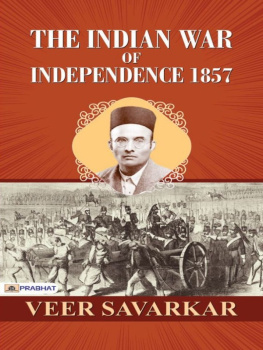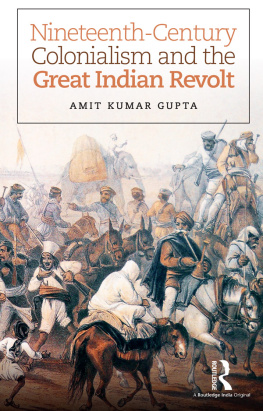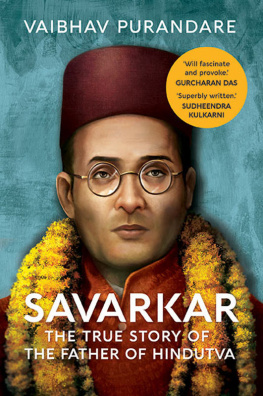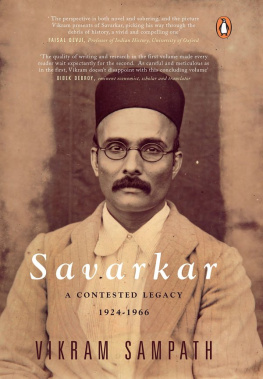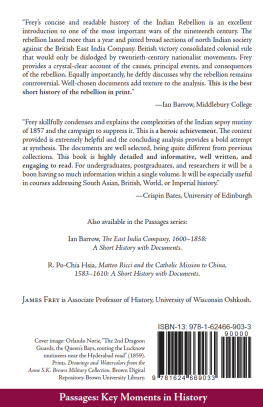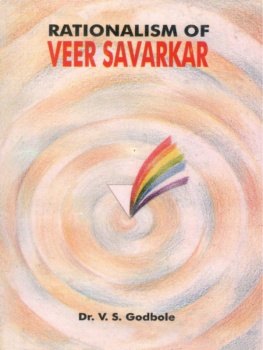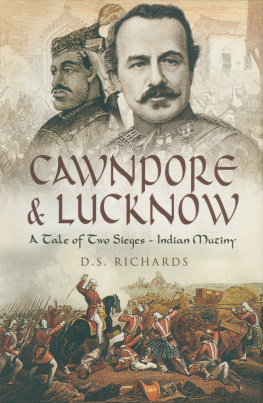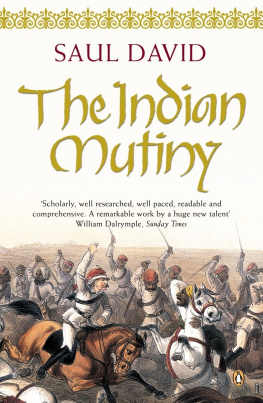The Indian War
of
Independence 1857
VEER SAVARKAR

The Original Publishers Preface
T his book on the history of 1857 was originally written in an Indian vernacular. But owing to the unique nature of the book, which, for the first time ever since the great War was fought, proves from the English writers themselves that the rising of the Indian people in 1857 was in no way an insignificant chapter in, or a tale unworthy of a great peoples history, pressing requests were made from many quarters to translate the work into the English language, so that by translations into the other vernaculars, the whole of the Indian nation might be enabled to read the history of the ever memorable War of 1857. Realising the reason and importance of these requests and with the kind permission of the author, the publishers undertook the translation of the original into the English language. With the patriotic cooperation of many of their countrymen, they are able today to place this work in the hands of Indian readers.
The work of translating an Oriental work into a Western tongue has ever been a task of immense difficulty, even when the translator has all the facilities, which leisure and training could afford. But when the translation had to be done by divose hands and within a very short time, it was clearly foreseen by the publishers that the translation would not be defective and unidiomatic. But the main point before the publishers was not to teach the Indian people how to make an elegant translation nor to show them how to write correct Englishpoints to which they were supremely indifferentbut to let them know how their nation fought for its Independence and how their ancestors died for the ashes of their fathers and the temples of their Gods. So, the publishers decided to run the risk of publishing the book as soon as it could explain the facts it had to tell, though none could be more conscious of the faults of the language than they themselves. Fifty years have passed and yet those who died for the honour of their soil and race are looked upon as madmen and villains by the world abroad; while their own kith and kin for whom they shed their blood, are ashamed even to own them! To allow this state of public opinion, born of stupid ignorance, and purposely and systematically kept up by a band of interested hirelings to continue any longer, would have been a national sin. So, the publishers have not waited till the language of this translation could be rendered elegant, which would be more shamefulto let hideous calumny hover over and smother down the spirit of martyrdom, or to let some mistake creep into a book admittedly translated into a foreign tongue! The first, at the best, was a crime, and the second at the worst, a venial literary offence. Therefore, the publishers owe no apology to, nor would one be asked for, by the Indian readers for whose special benefit the work is published.
But, to those sympathetic foreign readers, who might be inclined to read this book, we owe an apology for the faults of the language and crave their indulgence for the same.
London
May 10, 1909
The Publishers
The Story of this History
An honest tale speeds best, being plainly told.
Shakespeare
A part from the splendid merits of the subject matter dealt with in the warlit pages of this history of The Indian War of Independence of 1857, the story of the thrilling vicissitudes, through which this book had to pass, does by itself entitle it to be placed on the classical shelf in any world library.
The Object and the Name of the Book
Veer Savarkarji, the famous author of this book, did himself explain in an article in the Talwar, an organ of the Abhi Nava Bharat Revolutionary Society, which was started by him and published in Paris that his object in writing this history was, subject to historical accuracy, to inspire his people with a burning desire to rise again and wage a second and a successful war to liberate their motherland. He also expected that the history should serve to place before the revolutionists an outline of a programme of organisation and action to enable them to prepare the nation for a future war of liberation. It would never have been possible to preach such a revolutionary gospel publicly throughout India or carry conviction so effectively as an illuminating illustration of what had actually happened in the nearest past would do. So, he invoked the warriors of 1857 to deliver his message through their own mighty words and mightier deeds.
The ideal of absolute political Independence, and the conviction that the ultimate and inevitable means to realise that ideal could be no other than an armed national revolt against the foreign domination were conceptswhich in those dayslay even beyond the horizon of the then political thought and action in India. The very mention of them was brushed aside as chimerical by the then extremists, was denounced as criminal by the loyal moderates and was even anathematised as immoral by the half-witted moralists! But these self-same concepts formed the two fundamental tenets of the A.N.B. (Abhi Nava Bharat) Revolutionary organisation. Reforms and a peaceful solution formed the alpha and omega of the ambition of the then Indian National Congress itself. Independence, Revolutionlet alone a War for Independencewere as a rule words almost unknown, unheard and inconceivably incomprehensible even to the highly patriotic Indian world. It was to familiarise this Indian patriotic world with at least these words in daily thought, and by their constant repetition, like that of a Mantram to hypnotise the youthful political mind into a subconscious attraction for the noble concepts, which the words connoted that Savarkar, who as a historian, would have called this book a history of the National Rising or of the Revolutionary War of 1857, did, of a set design, name it the history of The Indian War of Independence of 1857.
Veer Savarkar always emphasised the necessity in the Indian condition of carrying politics and patriotism to the camp, to the military forces in India, for rendering any armed revolt practical. The history of the Revolutionary War of 1857 proved beyond cavil or criticism that only some fifty years previously our ancestors had aimed to achieve absolute political independence, could bring about the active and armed participation in the national struggle of the military forces and could wage an inexorable war for the liberation of our motherland. He consequently felt that this history, if told, viewing it through such a revolutionary perspective, was most likely to animate the rising generation of India with the faith that there was no reason why it should not be practicable and even more faithful to try again as, at any rate, there was no other way to salvation. How far this expectation of the author was realised will be seen as this story proceeds.
Originally written in Marathi
This book was originally written in Marathi, in 1908, when Veer Savarkar was about twenty-four years of age. Some select chapters used to be reproduced in English, in speeches, which Veer Savarkarji used to deliver at the open weekly meetings of the Free India Society in London. Perhaps, through this channel or otherwise, the detectives got some scent of the subject-matter of this book, which their reports dubbed revolutionary, explosive and highly treasonous. Soon a chapter or two of the Marathi manuscript were found missing, which, it was disclosed later on, were stolen by the detective agents, and found their way to the Scotland Yard, the headquarters of the British Intelligence Department in London. Nevertheless, the Marathi manuscript was sent to India by the revolutionists so secretly and cleverly that, foiling the strict vigilance of the customs authorities of the Indian ports, it reached safely its destination. But the leading press-concerns in Maharashtra dared not run the risk of printing the volume. At last, the owner of a printing firm, who was himself a member of the Abhi Nava Bharat Secret Society, undertook to publish it. In the meanwhile, the Indian police too got some vague information that the volume was being published in Marathi. They, thereupon, carried a number of simultaneous surprise raids on some prominent printing houses in Maharashtra. But, fortunately, the owner of the Press, where the book was being actually printed, got a hint through a sympathetic police officer and succeeded in smuggling out the Marathi manuscript to a safer place just before the search party arrived. The manuscript was later on sent back to Paris instead of to London, and fell into the hands of its author.
Next page
